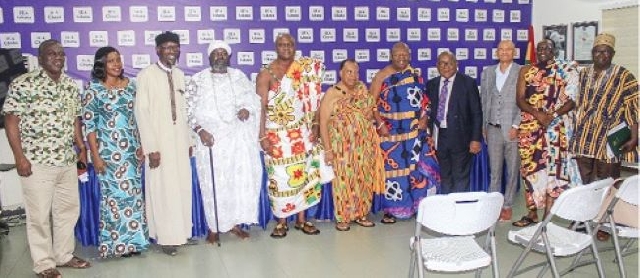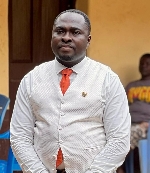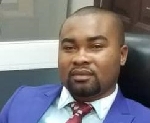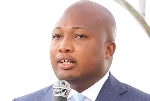Traditional rulers advocate increased powers in constitutional review
 The chiefs and some delegates
The chiefs and some delegates
Some traditional rulers have called for a constitutional review to empower chiefs and enhance their meaningful contribution to the socio-economic development of the country.
They expressed concerns that the country's current governance system does not effectively address its development challenges, including the issue of illegal mining (galamsey), partly due to the marginalisation of chiefs in governance matters.
The traditional rulers who made this call are Nene Sakite II, the President of the Eastern Regional House of Chiefs; Odeefuo Amoakwa Buadu VIII, the President of the Central Regional House of Chiefs; and Nuumo Gbelenfo III, the Osu Gua Wulomo and acting President of the Osu Traditional Council.
They shared their views at the Institute of Economic Affairs (IEA) constitutional review series held in Accra recently. The event focused on the theme: "Reviewing Ghana's 1992 Constitution: Viewpoints from the National House of Chiefs."
Nene Sakite II emphasised the importance of traditional leadership in strengthening governance structures. He proposed the introduction of a second Chamber of Parliament, consisting mainly of traditional rulers from all regions of the country, as a means to empower chiefs and involve them more actively in decision-making processes.
He also suggested limiting the excessive powers of the presidency in appointments, with the aim of strengthening governance.
Nene Sakite II further highlighted the need to review the constitution to ensure the security of tenure for Chief Justices (CJs). He recommended that CJs be appointed through an independent structure rather than by the presidency, in order to prevent interference with their appointments by successive governments.
Odeefuo Buadu VIII echoed the call for empowering chiefs through constitutional provisions, stating that it would enable them to maximize their contributions to the socio-economic development of the nation. He emphasized that chiefs play a vital role in resolving issues quickly and efficiently, acting as economic agents and promoting development.
Odeefuo Buadu VIII expressed concern that modern governance structures seem to marginalize the role of chiefs in national development, and called for their empowerment through adequate power and resources to foster national cohesion.
Numo Gbelenfo III emphasised that the limited powers of chiefs hinder their ability to address societal challenges such as indiscipline among the youth, including issues like hooliganism and drug addiction.
He called for constitutional reviews that would prevent undue interference by politicians in the affairs of the chieftaincy institution.
Togbe Tepre Hodo IV, the President of the Volta Regional House of Chiefs, proposed a review of Articles 131 (1a) and 144 (1) of the constitution.
He suggested that appeals should not be granted as an automatic right to the Supreme Court and recommended that the Court of Appeal handle appeal cases exclusively.
He also advocated revising the appointment process of Chief Justices, moving away from presidential appointments and considering past unconventional means such as seniority.
During an open forum, Cletus Avoka, the Member of Parliament (MP) for Zebilla, expressed disagreement with calls to revise Article 78 of the Constitution, which mandates the appointment of a majority of ministers from MPs.
Mr Avoka argued that this constitutional provision has positively impacted the quality of intellectual and professional representation in Parliament, leading to improved legislation for the country.
Overall, the traditional rulers and other participants in the discussion highlighted the need for a constitutional review to empower chiefs, enhance their role in governance, and address various issues affecting national development.
Source: Classfmonline.com
Trending News

NIA begins registration of Ghanaians aged 6-14 at premium centres
13:45
Bribed GRA staff, NPP secretary exposed over wicked lies against Dr Bawumia
14:16
Bryan Acheampong's campaign strategist warns NPP against confronting religious leaders
08:35
Energy Minister chairs 7th ISA Africa Regional meeting on solar energy
23:44
NPP strongly condemns threat of death, physical assault by NDC officers
16:49
Ghana solidarises with Qatar, sees Israel's 'unprovoked' fatal attack as counterproductive
14:00
Sunyani Assembly decongest city today
11:36
Local Gov't Minister vows tougher enforcement as National Sanitation Day is relaunched
01:18
Energy Minister inaugurates Electricity Market Oversight Panel
23:38
Energy Minister calls for urgent action to address Africa’s energy inequities
14:30



